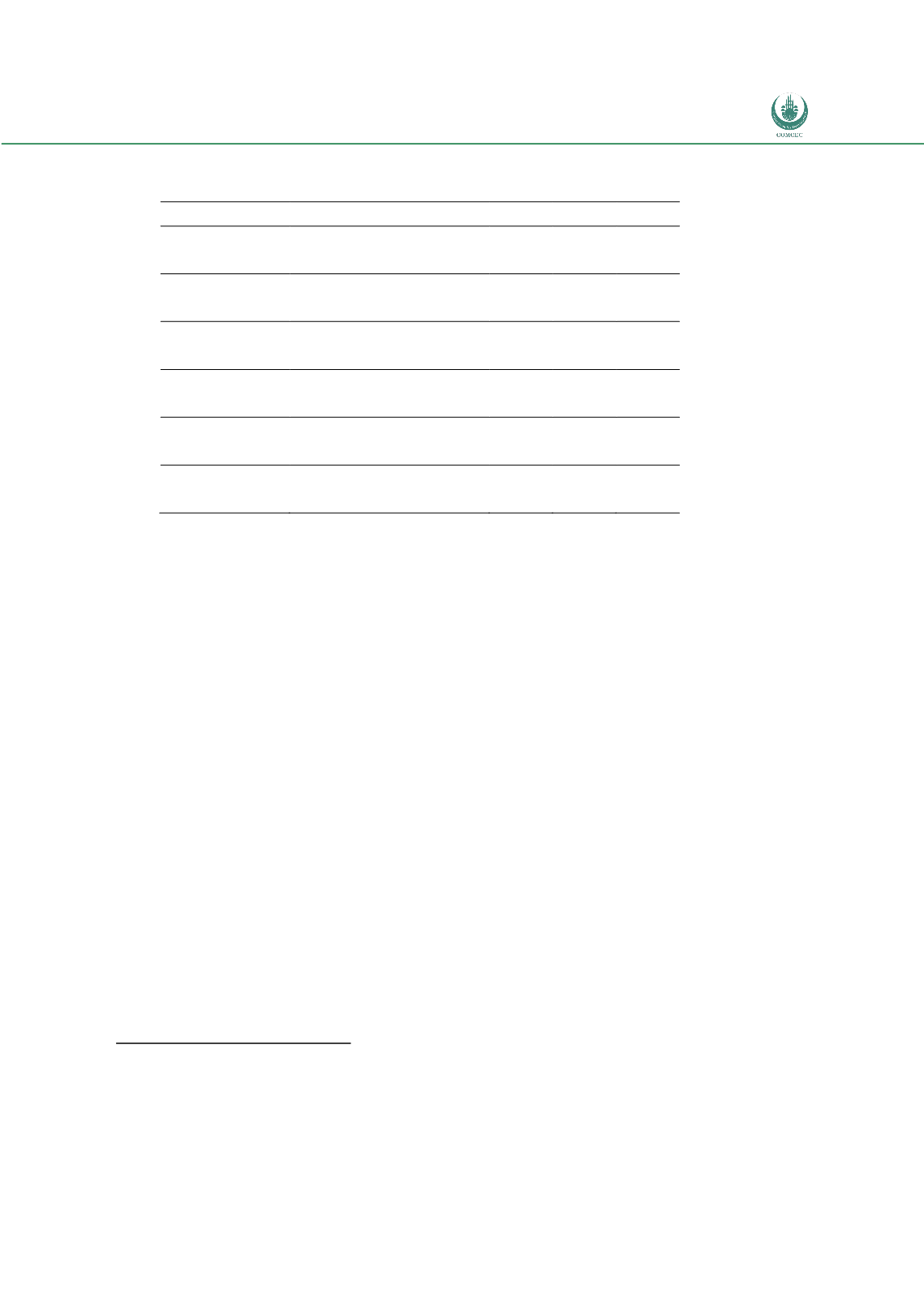

Preferential Trade Agreements and Trade Liberalization Efforts in the OIC Member States
With Special Emphasis on the TPS-OIC
123
Table 21:
GCC country Simple Average MFN and Preferential Tariffs
Reporter
Partner
2000
2005
2012
Bahrain
World (MFN)
5.12
5
World (applied tariff)
4.34
Kuwait
World (MFN)
4.76
4.7
World (applied tariff)
4.58
Oman
World (MFN)
5.04
4.49
World (applied tariff)
3.44
4.14
Qatar
World (MFN)
5.03
4.7
World (applied tariff)
4
Saudi Arabia World (MFN)
11.95 4.76
5.1
World (applied tariff) 11.95 4.14
UAE
World (MFN)
4.9
4.7
World (applied tariff)
4.66
Source: WITS (TRAINS database - aggregated from 6 digit data). With the exception of Oman
where the 2012 MFN data are from WTO et.al.(2013)
Internal GCC borders are tightly controlled and in particular customs checks remain in place
for security and other reasons including collection of statistics and preventing piracy and
commercial cheating. Crossing intra-GCC borders can sometimes be time-consuming.
29
Customs administrations remain little integrated among GCC countries and cooperation
between them is mainly in the form of sharing information and processes (WTO, 2014a).
GCC countries have very open labour markets with generally free movement of GCC nationals
who are allowed to work practically in all sectors. There is substantial co-ordination of several
trade-related laws and policies. GCC countries have the Common GCC Customs Law. The GCC
has also developed a Common Anti-dumping, Countervailing Measures, and Safeguards Law,
which some but not yet all GCC members have implemented. The 2001 agreement also
provides for GCC institutions to deal with dispute settlements (including the GCC Commercial
Arbitration Center). Cooperation and harmonization is also visible in areas such as intellectual
property, and in transport and other services sectors. In 2008, the common market for services
was launched, but it has not yet been notified to the WTO and little information is available on
its actual implementation.
29
For instance, in 2011 the Al Ghuwaifat border crossing between the United Arab Emi- rates
and Saudi Arabia saw build-up of queues of trucks with waiting time of several days,
http://www.reuters.com/article/2012/07/23/us-gulf-integration-idUSBRE86M0F920120723[accessed 5
May 2014]

















